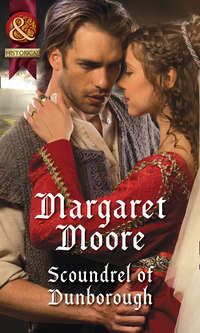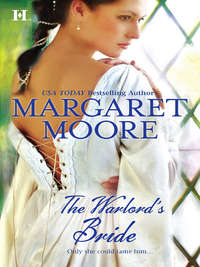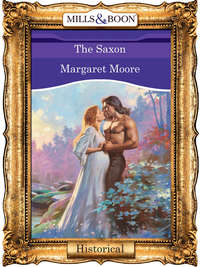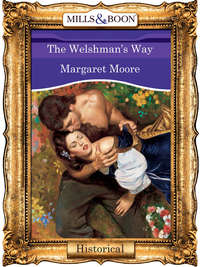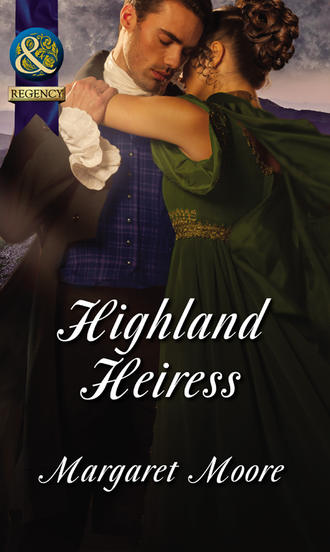
Полная версия
Highland Heiress
His expression pensive, her father walked round his desk and shuffled some papers before he spoke again. “You do realize, Moira,” he began without looking at her, “that not everyone in Dunbrachie is in favor of your charitable endeavor? Even parents whose children will benefit are afraid you’ll be filling their heads with visions of futures that can’t possibly come to pass.”
“That’s because they don’t yet appreciate the value of an education,” she staunchly replied. “I expected some opposition. There always is when something is new and different. But once they see the value of being able to read and write and the opportunities it will afford their children, surely their opposition will melt away.”
“I hope so,” her father replied, glancing up at her. “I truly hope so. I would never forgive myself if something happened to you.”
She knew how much her father loved her and wanted her to be safe and happy. A more selfish, ambitious man would never worry about her as he did, or try to keep his promise not to overimbibe, or come to her with such a stricken, sorrowful expression when he discovered the truth about the man she had agreed to marry, and the things he’d done. She didn’t doubt that it had been almost as upsetting for her father to learn the true nature of her fiancé and have to tell her about it as it had been for her to hear it.
She hurried to embrace him. “We’ll look after each other, Papa,” she said with fervent determination, “as we’ve always done, in good times and bad.”
So she said, although she just as fervently hoped the bad times were at an end.
Chapter Two
Built in the Palladian style of granite and with a slate roof, McStuart House nestled on the side of the hill overlooking the village of Dunbrachie. The first time Gordon had been there as a lad of twelve he’d been awed into silence by the magnificent and spacious house and its army of servants. The last time he’d visited here, about five years ago, he’d counted the windows and discovered there were thirty-eight, front and back, and not including the French doors that led to the terrace from the drawing room and library.
But the architectural details of Robbie’s home, which he’d inherited on the death of his father three years ago, were not uppermost in Gordon’s mind as he approached this day. Nor were the thickening rain clouds.
He was thinking about that young woman, and Robbie—not that he wanted to think of them together, in any way.
He didn’t want to believe that his first assumption about the cause of her rage—a love affair gone wrong—was the correct one, so he tried to come up with other explanations for her anger.
Maybe there had been a family business venture involving Robbie that went awry. Robbie was not the most responsible of men, and he had no head for figures—except those of women—so it could well be that some sort of transaction or bargain had turned out badly.
Perhaps there was a sister or a cousin or a friend Robbie had flirted with and she was angry because she was jealous.
Whatever the explanation, as he neared the large portico at the front of McStuart House and the first drops of rain began to fall, he decided not to mention the encounter to Robbie. He didn’t want to hear Robbie’s account or explanations, especially if he and that bold, beautiful young woman had been lovers. He wanted to rest, and to try to forget Catriona.
He tied the horse to the ring on one of the columns and hurried up the three wide steps to the equally wide front door with a stained glass fanlight above. The door swung open to reveal a tall, austere butler Gordon didn’t recognize.
“Mr. McHeath, I presume?” the older man said in a refined English accent.
“Aye,” Gordon answered, giving his coat and hat to the liveried footman who appeared beside the butler.
“Sir Robert is expecting you in the drawing room.”
Gordon nodded and hurried inside, making his way to the drawing room through the imposing foyer with walls covered with the horns of stags and rams, spears, pikes, swords and armor. Beyond the drawing room and wide double staircase were several other rooms, such as the library where he and Robbie had played at soldiers when they were younger, and a billiard room they’d used when they were older. There were at least three bedrooms on the main level and twelve above, and servants’ quarters above that, on the uppermost level. He still had no idea how many smaller rooms existed below stairs, where the kitchen, laundry, pantry, buttery, wine cellar, servants’ parlor, servants’ dining room and various other rooms necessary for the running of the house were located.
When he entered the drawing room, he immediately spotted Robbie standing by the French doors leading to the flagstone terrace where the rain was now falling in earnest. Looking out over the garden that had been designed by Inigo Jones, his friend stood with his head lowered, one hand braced against the door frame, the other loosely holding an empty wineglass.
That was such an unusual pose for Robbie, Gordon wasn’t sure if he should disturb him or not, so he took a moment to survey the room. Nothing seemed to have changed since the last time he was here. The walls were still papered in that unusual shade of ochre, the gilded furniture was still covered with the same dark green velvet. The same portraits of long-dead ancestors hung in the same places, the same landscapes in theirs. Even the books on the side tables looked as if they were the ones that had been there five years ago. Everything was clean, with not a speck of dust to be seen, but otherwise, it was as if time had stood still.
Until Robbie turned around.
What the devil had happened to him? He looked as if he’d aged a decade, and a hard-lived decade at that. His face was pale and gaunt and there were dark semicircles beneath his bloodshot blue eyes. While his body had always been slim, now it looked almost skeletal. Only his thick, waving fair hair appeared unchanged.
As Gordon tried not to stare, Robbie set his wineglass on the nearest table and walked toward him smiling.
At least his smile was the same, merry and charming, and a spark of vitality was in his voice as he cried, “Gordo, you old bookworm! I thought you’d never get here! But I never should have doubted you’d arrive after sending me word you’d come, should I? Always dependable, that’s Gordo!”
Gordon had always detested that particular version of his name, yet he was far too concerned about his friend’s state of health to be annoyed. “I ran into a bit of trouble on the far side of the village,” he said dismissively before asking with more concern, “How are you, Robbie?”
“I’ve been a little under the weather,” his friend admitted as he reached out to shake Gordon’s hand.
“Nothing serious, so stop staring at me like an undertaker taking mental measurements,” he finished with a laugh, his grip strong and firm. “Just a little too much of the juice of the grape last night.”
That would certainly explain his appearance. And Robbie had never been much of an eater. But it was his hearty handshake that convinced Gordon there was nothing seriously amiss with his health.
“Let’s have a drink. I’m sure you need one,” his friend continued as he went to a cabinet and poured some amber-colored liquid into two glasses. “The roads around here can make for a damned uncomfortable ride.”
Although Gordon suspected Robbie had already been drinking more than was good for him, he was tired and thirsty and accepted the whiskey. “Thank you.”
Robbie downed his neat. Still holding the glass, he ambled toward the ornately carved hearth. “I suppose you were surprised to get my invitation.”
“I was delighted,” Gordon truthfully replied. And very happy to have a good reason to be away from Edinburgh for a while.
Robbie fingered his glass and looked down at the empty interior. “Yes, well, I confess my motives weren’t completely selfless. I’ve had a bit of trouble, Gordo.”
Involving a beautiful young woman whose passion could send a man reeling? God, he hoped not!
Nevertheless, he managed to calmly reply. “I see. What sort of trouble?”
Robbie gestured toward the sofa closest to him. “Sit down and I’ll tell you all about it—or do you want a bite to eat first? I’ve got a new cook, a Frenchman. Can’t understand half of what he says, but the food’s wonderful.”
No doubt costly, too, but the McStuarts had been rich since the Jacobite Rebellion, when they’d switched churches and allegiances to their advantage as easily as most men changed trousers. Not the most honorable of heritages, Robbie used to say, but it had kept the family solvent ever since.
“No, thank you. I’d rather hear about you,” Gordon replied as he sat down.
Robbie poured himself another whiskey, while Gordon twisted his half-full glass in his hand and waited.
“Well, Gordo, I suppose it had to happen eventually,” Robbie began, sighing as he leaned against the cabinet, holding his glass loose in his fingers with the same casual ease he always displayed, even when called before the tyrannical headmaster at the school where they’d met when they were ten years old. “I’ve had my heart broken at last, old chum. Smashed. Shattered. Wrecked and ruined by a cold and stubborn woman.”
A romantic affair gone wrong then.
Even though there was still the chance that Robbie’s heart had been broken by a woman who didn’t wear a yellow velvet riding habit, Gordon wished he’d taken another route, so he’d never have had that passionate, disastrous encounter.
“Yes, Gordo, it’s true. I fell in love—deeply, completely in love. And I thought she loved me, too, so I asked her to marry me.”
That was even more shocking. Robbie had certainly professed to being in love before—many times, in fact—but as far as Gordon knew, he’d never gone so far as to propose.
What, then, had gone wrong?
“Yes, I was actually ready to put my neck into the matrimonial noose—and she accepted. Seemed only too happy, in fact. We announced it at a ball at her father’s house.”
“Her father being…?”
“The Earl of Dunbrachie.”
Gordon tried to keep his expression suitably sober, although his heart fairly leaped with relief. Her father was a merchant or manufacturer who owned warehouses, not a titled nobleman.
“A fine match for us both, and then barely a fortnight later, she tells me she won’t marry me after all.”
No wonder Robbie looked exhausted. He, too, had spent many a night these past few months tossing and turning, thinking about his feelings for Catriona McNare. What he’d done and not done, said or should have said. Although he would never have sought solace in a bottle as he feared Robbie had been doing, he could certainly appreciate the inclination to want to drown his sorrows and seek the comforting company of an old friend. “I’m very sorry, Robbie.”
“I knew I could count on you to be sympathetic,” Robbie said with a grin. “And in one way, I suppose I should count myself lucky. Do you know what her father was before he inherited the title? A wool merchant. A very rich wool merchant, but a wool merchant nonetheless.”
The ceiling collapsing on Gordon’s head couldn’t have shocked him more. A rich wool merchant would have warehouses, or access to them.
“He was so distantly related to the late earl,” Robbie continued without looking at his silent friend, “it came as a shock to everybody—including him, I gather. And Moira herself can be eccentric. She has a positive mania about educating the poor. Wants to build a school for the children of Dunbrachie, although what they’d do with an education I have no idea. It’s not like most of the men in Dunbrachie want a school, either.”
If it was the same woman—and Gordon clung to the fast-diminishing hope that he was still jumping to the wrong conclusion—why had she broken the engagement? To be sure, Robbie could be impulsive and wasn’t prone to planning, but he was handsome, rich and titled, loyal and good-natured. Many a nobleman’s daughter could, and did, do worse.
“It would have been upsetting if she’d refused when I’d asked her, but I daresay I would have gotten over it soon enough. After all, there are plenty of other attractive, rich and nobly born women who would welcome my attention.”
Whoever the woman was, Gordon could certainly understand Robbie’s bitterness. Still, there was an arrogance in his tone that made it more difficult to sympathize with his friend. On the other hand, would he not have sounded so bitter and defensive if someone had asked him what was troubling him lately, too?
Robbie walked to the French doors, turned on his heel and made a sweeping gesture with the hand holding his empty glass. “Who does Moira MacMurdaugh think she is, that she can make a fool out of Sir Robert McStuart? She’s the fool if she thinks I’m simply going to let her humiliate me. That’s why I need your help, Gordo.” He straightened his shoulders and a triumphant gleam came to his bloodshot eyes. “I want to sue Lady Moira MacMurdaugh for breach of promise.”
Now it was as if the floor had given way, too. “You want to sue this woman for breach of promise?” Gordon repeated.
“Exactly.”
Gordon forced himself to try to forget about the woman who might or might not be the one he’d kissed, and think like the solicitor he was. Robbie clearly hadn’t considered all the ramifications of starting a legal action that was generally the province of women. “I can appreciate that you’re upset—”
“Upset? I’m not upset,” Robbie snapped, setting his glass down on an ebony-inlaid side table so hard, Gordon expected it to break. “I simply want her to understand that she can’t go around accepting proposals and rejecting them out of hand. Or don’t you think I have a case?”
Now things were getting even more difficult. Robbie might have a case, but there were other considerations he should take into account, as Gordon proceeded to explain. “If the engagement was public knowledge, you do have some cause of action. However, there’s something else you might want to think about first, Robbie. Dunbrachie is a small village, but this sort of legal activity will likely come to the attention of a wider circle, and probably the press, at least in Scotland. Your—” he hesitated, and chose a word other than humiliation “personal concerns may well become gossip fodder, splashed about the papers and discussed by complete strangers.
“Would it not be better to simply forget what happened? After all, as you yourself said, there have always been women eager for your attention.
“I’m sure you’ll find love again,” he finished, voicing a wish he harbored for himself, a wish that had suddenly seemed far more possible when he’d looked up and seen a beautiful woman trapped in a tree.
“You’re rather missing the point, Gordo,” Robbie said as he threw himself onto the sofa. “I’m not just doing this for myself. I’m doing it for all the other poor sods whose hearts she might break.”
He turned his head and regarded Gordon with a measuring, sidelong look. “If I were a woman in such circumstances, you’d take the case, wouldn’t you?”
“Perhaps,” Gordon replied. He wasn’t really sure what he’d do. However, he truly believed it would do Robbie more harm than good to sue. “What reason did she give for breaking the engagement? She did have a reason, I assume.”
Scowling, Robbie sat up. “She said she didn’t love me,” he replied with more than a hint of defiance, as if such a thing were too ludicrous to be credible.
Given Robbie’s experience with the fairer sex, he might be excused for thinking so. Nevertheless… “Perhaps it’s for the best then,” Gordon replied, repeating the same thing he’d been telling himself ever since he’d met Catriona McNare’s fiancé.
Robbie’s brows lowered and his mouth got that stubborn set Gordon well remembered. “She said she could never love a man like me.”
A man like Robbie, who was handsome and charming and a good friend? “What on earth did she mean by that?”
Robbie jumped to his feet and strode to the window. “It means she doesn’t understand how the upper class lives. I haven’t committed any crime. I haven’t done anything every nobleman in Scotland or England and certainly France hasn’t done before me. She claims to be a lady, yet she broke the engagement over a trifle.”
If he had done something to cause her to change her mind, that made a difference. “I think you’d better tell me what exactly this ‘trifle’ was.”
Robbie didn’t answer right away. First he marched to the cabinet and poured himself another drink, making Gordon wonder if too much drink was the trifle, and if so, it was indeed no trifle. No woman of sense wanted to marry a drunkard.
“If I’m to act as your solicitor in this matter, Robbie, I have to know all the details,” Gordon said quietly, beginning to feel a bit sorry that he’d accepted Robbie’s invitation.
He thought his friend had asked him there because they were friends and it had been a long time since they’d seen each other, not because he needed legal advice, yet now there was a possibility he was going to get embroiled in a case he’d prefer to avoid.
Robbie gulped down his whiskey and when he looked at Gordon again, he appeared even more haggard, as if telling the truth was physically painful. Nevertheless, he smiled his merry, charming smile—only this time, it seemed more like a death’s-head grin to Gordon.
“No need to look so stern, Gordo. It was only a dalliance with one of the maids, the sort of thing that goes on all the time.”
He should have guessed it would be something like this. Robbie had always had “high spirits,” as their headmaster had called it when Robbie had been discovered with one of the maids at school. Indeed, he’d been famous for his liaisons and the envy of every boy in school.
But that was in the world of males. He could easily imagine—and sympathize with—a potential bride’s dismay at learning of her future husband’s lustful activities with a servant. “Did you assure her you’d be faithful once you were married?”
Robbie looked at Gordon as if he’d suggested giving up food and drink. “No. Why would I? Why should I?”
Gordon’s heart sank. “Because you were going to make such a promise when you said your marriage vows.”
“Gad, Gordo, don’t tell me you, with your profession, are naive enough to think any man’s really going to be faithful to his wife?”
“I’ve met several who are,” Gordon replied, recalling some of the happily married clients who’d passed through his offices.
Robbie slouched onto an armchair near the sofa and frowned like a petulant child. “Sometimes I forget you’re…” He fell silent and picked at a bit of lint on his lapel with his slender fingers that had never done a day’s work.
“Not of your class?” Gordon finished for him.
His friend blushed, the fire of his anger apparently quenched as he regarded Gordon with dismay, and the first sign of genuine remorse. “I’m sorry, Gordon.” He spread his hands in a gesture of surrender. “I’ll be perfectly honest with you. Yes, I dallied with one of the maids, but I never thought a fiancée or even a wife would really mind. I mean, you were at school. You heard the other boys talking about their fathers’ and brothers’ mistresses and lovers. It’s accepted in our world, or at least condoned. It was just a maid, after all. It’s not like I was keeping a mistress in the house. And I turned her out as soon as Moira learned about her.”
While Gordon was certainly well aware that many rich and titled men treated women like their personal toys to be used or discarded at will, he didn’t approve of that selfish behavior. And if Robbie thought hearing that the maid had lost her place because of their liaison was going to increase Gordon’s sympathy for his cause, he was even more mistaken. Gordon had helped too many servants who’d been seduced and cast out by their employers, suing for back wages at the very least, to have any sympathy for a master who took advantage of one.
In spite of his efforts to keep a blank countenance, his face must have betrayed something of his feelings, for Robbie’s next words had more than a tinge of self-defence. “It’s not as if the maid wasn’t willing. She was, I assure you. Very willing. Indeed, I think she seduced me.”
Gordon had heard this sort of excuse many times, too. “You were her master, Robbie. She might have felt she couldn’t refuse.”
“Of course she could!” Robbie retorted, hoisting himself to his feet. “I’m hardly some kind of brutal ogre.”
No, he wasn’t. Nevertheless…
“And I was honest enough not to make a promise to Moira that I wasn’t going to keep. But did she appreciate that? No, she looked at me as if I’d committed murder.”
Robbie ran his hand through his hair before starting for the cabinet again. “Maybe if she hadn’t been so angry…” Wrapping his hand around the decanter, he shook his head. “Oh, I don’t know what I would have done if she’d been calmer.” He walked away without pouring another drink and went to the fireplace. He picked up the poker and vigorously stirred the coals, sending ash swirling upward.
“Maybe instead of suing her, you should be grateful,” Gordon said quietly. “If you’d married her and strayed, and then she found out—”
“We would have been married and there would have been nothing she could do about it. She would have learned to accept that it’s a nobleman’s privilege, as my mother did and her mother before her.”
Gordon didn’t like what he was hearing. It smacked of brutal arrogance, of utter selfishness and a complete disregard for the feelings of another human being, the sort of attitude that spurred him to find justice for the weak and abused and cheated, and especially for women, who had so few rights under the law.
Rising, he went to face his friend, the better to see his face and read his expression, for eyes often said what words did not.
As a certain young lady’s eyes had spoken of desire before they’d kissed.
“What if your wife took a lover? Would you say then it was simply what people of your class do?”
Robbie clenched his jaw for the briefest of moments before he answered. “Of course. As long as I had an heir and a spare, my wife could take as many lovers as she liked.”
Robbie marched across the room to the cabinet, then turned to face his friend. “Obviously, I should have lied to you, and her. I should have said that of course I would be faithful. That I’d never even look at another woman.
“But I didn’t. So if you’d rather not represent me in this, I’ll find another solicitor who will. With you or without you, Gordo, I’m suing Moira McMurdaugh for breaking our engagement.”
Gordon regarded Robbie steadily. While Robbie never made any reference to what had happened at school, Gordon could never forget what he owed Robbie McStuart.
And if it was the same woman he’d rescued from the tree and kissed?
He still owed Robbie his career. “Of course I’ll represent you, Robbie.”
Chapter Three
Three days later, Moira leaned over the pedestal table in the book-lined library, studying the builder’s drawings of the future school, as well as his notations. She wanted to be sure that she was right before she addressed the prosperous middle-aged man standing before her with his thumbs in his vest pockets, rocking back and forth on his heels.
She was, but having dealt with tradesmen for many years, she didn’t begin with a direct accusation. That would only lead to confrontation, arguments, denials and, eventually, the pronouncement that women couldn’t be expected to understand business or the arithmetic that went with it.
“Mr. Stamford,” she began, “I must confess that I find your estimates rather…excessive.”
The plump man merely smiled with frustrating condescension. “Perhaps, my lady, we should wait for your father’s return from Glasgow. He’d due back today, is he not?”
“Yes, he is,” she replied, hoping with all her heart he would return as promised and hadn’t met any of his friends who had, in the past, led him astray. “However, the school is my responsibility, not his.”


